Navigating Risks & Opportunities: Antitrust And Competition Laws During The COVID-19 Pandemic
COVID-19 significantly impacts, even if temporarily, how private and public sector entities do business. Whether enterprises are dealing with disruptions to their supply chains or retooling their operations to provide emergency medical gear and equipment, business leaders are exploring collaborative efforts with other organizations, including competitors. As they adapt to conditions during the pandemic, private and public sector entities must keep in mind antitrust and other competition laws that regulate markets and procurements.
DOJ And FTC Issue COVID-19 Antitrust Guidance
The federal government’s antitrust enforcement agencies, U.S Department of Justice’s Antitrust Division (“DOJ”) and the Federal Trade Commission (“FTC”), recently issued a Joint Antitrust Statement Regarding COVID-19, which recognizes that responding to COVID-19 will require unprecedented cooperation between federal, state, and local governments and among private businesses to protect Americans’ health and safety.
To assist with such response, the DOJ and FTC are expediting their processes for providing advanced guidance to businesses on whether their COVID-19 efforts are consistent with federal antitrust laws.
Recognizing that businesses may not have the time to go through the advisory letter process, the DOJ and FTC acknowledge that many types of collaborative activities designed to improve the health and safety response to the pandemic would be consistent with the antitrust laws. They provide the following examples of such conduct:
- Firm’s collaboration on research and development is generally pro-competitive.
- Sharing technical know-how, but not competitively sensitive data on prices, wages, outputs, or costs, may be necessary and appropriate to achieve the benefits of collaborations.
- Absent extraordinary circumstances, the DOJ and FTC generally will not challenge health care providers’ development of suggested patient management parameters to assist in clinical decision making.
- Most health care providers’ joint purchasing arrangements do not raise antitrust concerns.
- Private lobbying of government agencies regarding COVID-19-related issues is generally immune from antitrust liability.
The FTC and DOJ also state that they will account for exigent circumstances in evaluating efforts to address the spread of COVID-19 and its aftermath. For example, health care facilities may need to work together in providing resources and services to communities without immediate access to personal protective equipment, medical supplies, or health care. Other businesses may need to temporarily combine production, distribution, or service networks to facilitate production and distribution of COVID-19-related supplies they may not have traditionally manufactured or distributed. This type of joint conduct, “limited in duration and necessary to assist patients, consumers, and communities affected by COVID-19 and its aftermath,” may be necessary to provide Americans with products or services that otherwise might not be available.
Nevertheless, the DOJ and FTC warn that they will vigorously prosecute companies and individuals that use COVID-19 as an opportunity to subvert competition and prey on vulnerable Americans in violation of antitrust laws. In particular, they note that they will take action against individuals and businesses who agree to restrain competition through increased prices, lower wages, decreased output, or reduced quality, as well as monopolists who use their market power to engage in exclusionary conduct, and criminal antitrust violations, such as price-fixing, bid-rigging, and customer and market allocation.
Emergency Government Procurements
On the public sector side, many state and local governments have adopted emergency contracting procedures to procure goods and services needed to respond to COVID-19. For example, paragraph 2 of California Governor Gavin Newsom’s March 4, 2020 Proclamation of a State of Emergency due to COVID-19 provides:
As necessary to assist local governments and for the protection of public health, state agencies shall enter into contracts to arrange for the procurement of materials, goods, and services needed to assist in preparing for, containing, responding to, mitigating the effects of, and recovering from the spread of COVID-19. Applicable provisions of the Government Code and the Public Contract Code, including but not limited to travel, advertising, and competitive bidding requirements, are suspended to the extent necessary to address the effects of COVID-19.
However, public agencies and their contractors must be mindful that emergency procurements are limited in scope to only what is necessary to address the needs of the emergency and that courts strictly construe exceptions to competitive bidding laws. Therefore, once the emergency conditions created by COVID-19 end, public agencies must cease relying on emergency contracting procedures and proceed under applicable competitive procurement laws.
Private and public sector entities seeking advice regarding these, or other antitrust and competition law matters, should contact Wright, L’Estrange & Ergastolo’s Antitrust & Unfair Competition practice group.
Wright, L’Estrange & Ergastolo legal alerts are not intended as legal advice. Additional facts or future developments may affect any laws, subjects, or information shared. Seek the advice of an attorney before acting or relying upon any information in this legal alert.


